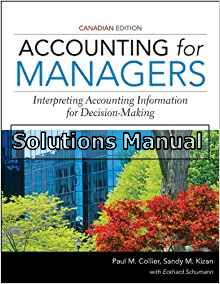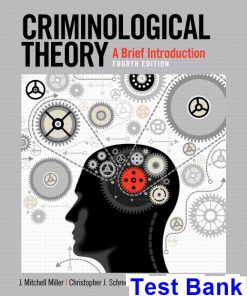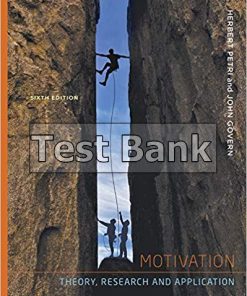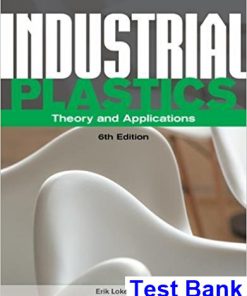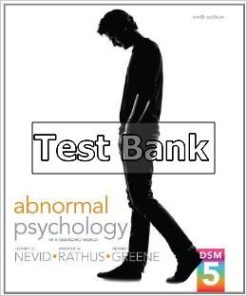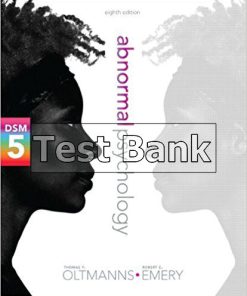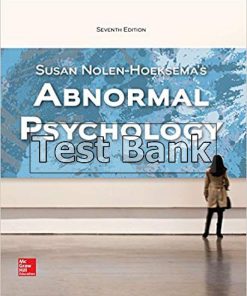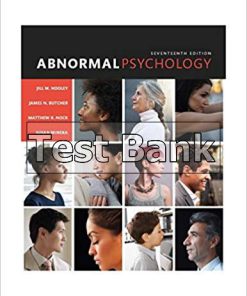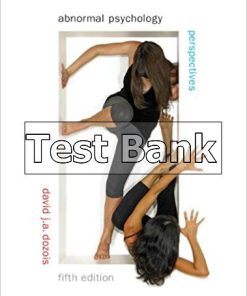Criminological Theory Context and Consequences 6th Edition Lilly Test Bank
$26.99$50.00 (-46%)
Criminological Theory Context and Consequences 6th Edition Lilly Test Bank.
You may also like
Criminological Theory Context and Consequences 6th Edition Lilly Test Bank
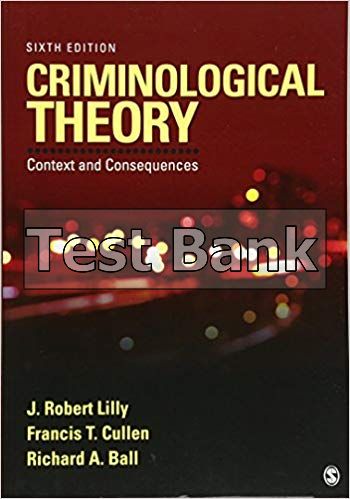
Product details:
- ISBN-10 : 1452258163
- ISBN-13 : 978-1452258164
- Author: J. Robert Lilly
Offering a rich introduction to how scholars analyze crime, Criminological Theory: Context and Consequences moves readers beyond a commonsense knowledge of crime to a deeper understanding of the importance of theory in shaping crime control policies. The Sixth Edition of the authors’ clear, accessible, and thoroughly revised text covers traditional and contemporary theory within a larger sociological and historical context. J. Robert Lilly, Francis T. Cullen, and Richard A. Ball include new sources that assess the empirical status of the major theories, as well as updated coverage of crime control policies and their connection to criminological theory.
Table contents:
CHAPTER 1: The Context and Consequences of Theory Theory in Social Context Theory and Policy: Ideas Have Consequences Context, Theory, and Policy: Plan of the Book Conclusion Further Readings
CHAPTER 2: The Search for the “Criminal Man� Spiritualism The Classical School: Criminal as Calculator The Positivist School: Criminal as Determined The Consequence of Theory: Policy Implications Conclusion Further Readings
CHAPTER 3: Rejecting Individualism: The Chicago School The Chicago School of Criminology: Theory in Context Shaw and McKay’s Theory of Juvenile Delinquency Theory of Differential Association The Chicago School’s Criminological Legacy Control and Culture in the Community Social Learning Theory The Consequences of Theory: Policy Implications Conclusion Further Readings
CHAPTER 4: Crime in American Society: Anomie and Strain Theories Strain Theory Status Discontent and Delinquency The Criminological Legacy of Strain Theory General Strain Theory A Theory of African American Offending Crime and the American Dream: Institutional-Anomie Theory The Market Economy and Crime The Future of Strain Theory The Consequences of Theory: Policy Implications Conclusion Further Readings
CHAPTER 5: Society as Insulation: The Origins of Control Theory Forerunners of Control Theory Early Control Theories Containment Theory Sykes and Matza: Neutralization and Drift Theory Control Theory in Context Further Readings
CHAPTER 6: The Complexity of Control: Two Theories and Beyond First Theory: Social Bonds and Delinquency Second Theory: Self-Control and Crime The Complexity of Control The Consequences of Theory: Policy Implications Conclusion Further Readings
CHAPTER 7: The Irony of State Intervention: Labeling Theory The Social Construction of Crime Labeling as Criminogenic: Creating Career Criminals The Consequences of Theory: Policy Implications Extending Labeling Theory Conclusion Further Readings
CHAPTER 8: Social Power and the Construction of Crime: Conflict Theory Forerunners of Conflict Theory Theory in Context: The Turmoil of the 1960s Advancing Conflict Theory: Turk, Chambliss, and Quinney Conflict Theory and the Causes of Crime Consequences of Conflict Theory Conclusion Further Readings
CHAPTER 9: The Variety of Critical Theory Modernity and Postmodernity Postmodern Criminological Thought: The End of Grand Narratives? Looking Back at Early British and European Influences Early Left Realism The New Criminology Revisited Left Realism Today Changing Social Context New Directions in Criminological Theory: Death and the Birth of New Ideas The New European Criminology Green Criminology Cultural Criminology Convict Criminology Conclusion Further Readings
CHAPTER 10: The Gendering of Criminology: Feminist Theory Background Prefeminist Pioneers and Themes The Emergence of New Questions: Bringing Women In The Second Wave: From Emancipation to Patriarchy Varieties of Feminist Thought The Intersection of Race, Class, and Gender Masculinities and Crime Gendering Criminology Postmodernist Feminism and the Third Wave Consequences of Feminist Theory: Policy Implications Conclusion Further Readings
CHAPTER 11: Crimes of the Powerful: Theories of White-Collar Crime The Discovery of White-Collar Crime: Edwin H. Sutherland Organizational Culture Organizational Strain and Opportunity Deciding to Offend State-Corporate Crime Consequences of White-Collar Crime Theory: Policy Implications Conclusion Further Readings
People also search:
criminological theories in criminal justice
criminological theory context and consequences pdf
criminological theory context and consequences pdf free
6 criminological perspectives
criminological theory context and consequences chapter summaries

